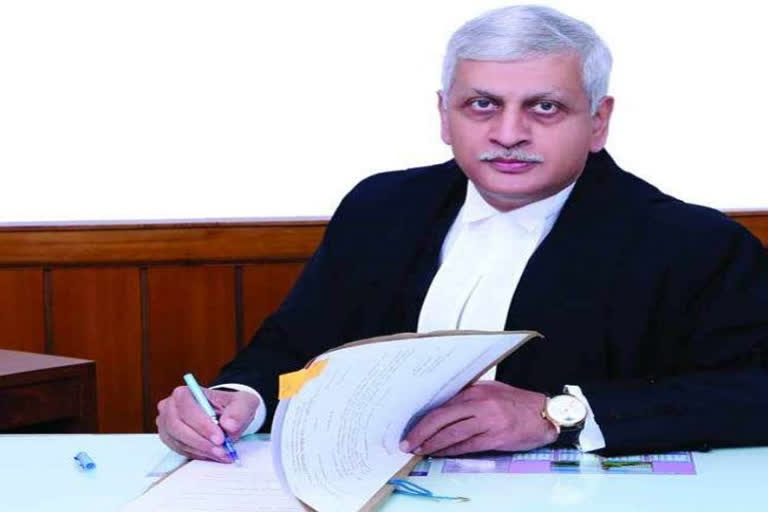New Delhi: Justice Uday Umesh Lalit was Wednesday appointed as the 49th Chief Justice of India. "In exercise of the powers conferred by clause (2) of Article 124 of the constitution of India, the President is pleased to appoint Shri Justice Uday Umesh Lalit, Judge of the Supreme Court, to be the Chief Justice of India with effect from 27th August 2022," read an official notification from the Ministry of Law and Justice.
Outgoing Chief Justice NV Ramana had recommended to the Centre to appoint Justice Uday Umesh Lalit -- the senior-most judge of the Supreme Court -- as his successor and the next CJI. Justice Lalit is the second CJI who was directly elevated to the apex court Bench from the Bar. Justice S M Sikri, who became the 13th CJI in January 1971, was the first lawyer to be elevated directly to the top court bench in March 1964.
Outgoing CJI N V Ramana congratulated Justice Lalit on the latter's appointment. Justice Ramana conveyed his best wishes to Justice Lalit for a glorious tenure as the Chief Justice of India. He expressed confidence that with Justice Lalit's "long and rich experience in the Bar as well as on the Bench, he will take the institution of judiciary to greater heights through his able leadership."
Also read: CJI Ramana set to demit office: Here are six key cases awaiting decision
Who is Justice Lalit?
Justice Lalit was born on November 9, 1957, and began his career after he enrolled as an advocate in June 1983 and practised in the Bombay High Court till December 1985. He shifted his practice to Delhi in January 1986, and in April 2004, was designated as a senior advocate by the Supreme Court of India. Justice Lalit is reportedly due to retire on November 8, 2022.
Among his several landmark judgements, one of the path-breaking verdicts was the August 2017 judgement by a five-judge constitution bench which by a 3-2 majority ruled the practice of divorce through instant 'triple talaq' as "void", "illegal" and “unconstitutional," according to news agency PTI.
Interestingly, in another important judgement, a bench headed by Justice Lalit had ruled the erstwhile royal family of Travancore has the management right over the historic Sree Padmanabhaswamy Temple in Kerala, one of the richest shrines, holding that the rule of "heritability must get attached to a right of Shebait" (servitor) of the temple, the report said.
Another remarkable and landmark judgement was when a bench headed by Justice U U Lalit had ruled that touching sexual parts of a child's body or any act involving physical contact with 'sexual intent' amounts to 'sexual assault' under section 7 of the Protection of Children from Sexual Offences (POCSO) Act as the most important ingredient is sexual intent and not skin-to-skin contact.
Quashing the controversial 'skin-to-skin' judgements of the Bombay High Court in two cases under the POCSO Act, the bench had said the high court erred in holding that there was no offence since there was no direct 'skin-to-skin' contact with sexual intent, the report noted.



